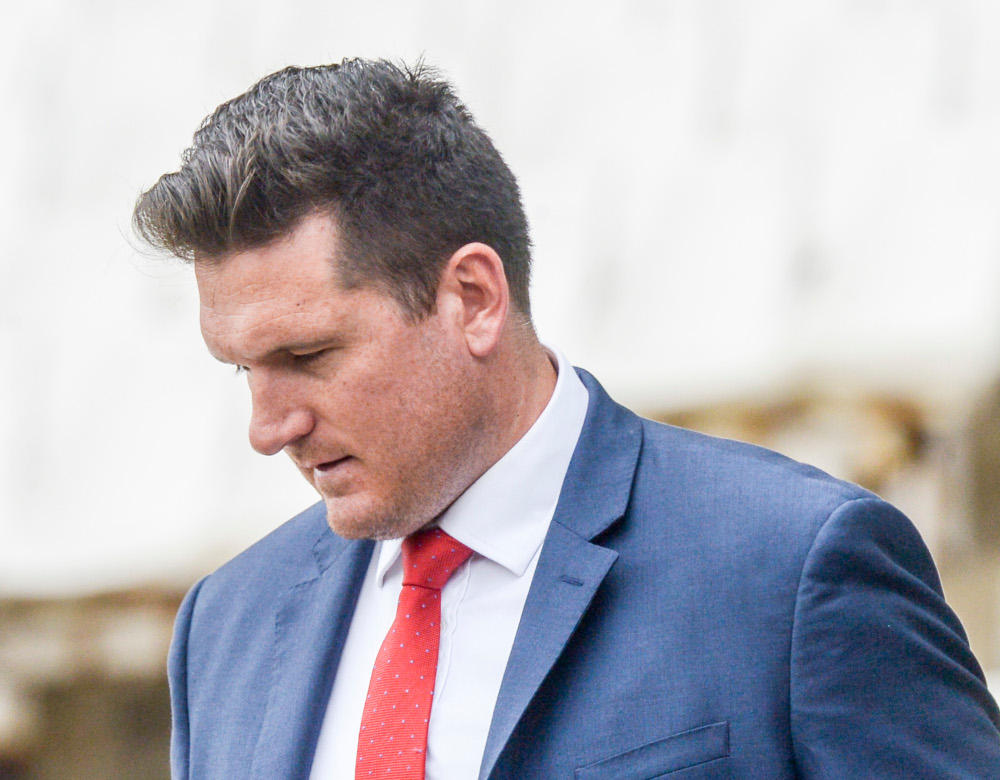Cricket South Africa’s director of cricket, Graeme Smith, has every right to defend himself against potentially defamatory accusations of a racial nature. But with new testimony from the SJN leaked regularly, he is under immense pressure and needs to act with emotional intelligence, writes RYAN VREDE.
As a player, Smith was one of the finest captains and batsmen in South African history. As the director of cricket, a position he was appointed to in an interim capacity in December 2019 and full time just over a year ago, he has had to constantly address issues related to his alleged treatment of black African players during his tenure as Proteas captain.
Most recently, Smith, through a letter sent by his lawyer, David Becker, caused the Social Justice and Nation Building hearings, where a number of current and former black professional cricketers would have provided public testimonies of their experience of discrimination within the country’s cricketing structures, to be postponed.
It is understood that Smith is implicated in some of the testimony. Fearing litigation, CSA hit the brakes on the hearings, saying ‘… the Board and the Ombud are eager to ensure a fair and transparent process for all who participate in the proposed hearings’.
In the middle of last year, former Proteas wicketkeeper Thami Tsolekile accused Smith of being at the heart of his omission from the Test team after Mark Boucher sustained an injury on the tour of England in 2012. AB de Villiers was handed the gloves, despite Tsolekile’s keeping competence and batting form.
Last week TimesLive‘s Tiisetso Malepa reported that, according to leaked SJN testimony from former Proteas seamer Lonwabo Tsotsobe, Smith threatened to leave the tour if Tsolekile was picked.
Smith hasn’t responded to this specific accusation, but did at the time of Tsolekile’s. ‘Almost every player I have come across feels that they could have contributed more,’ the former Proteas skipper and now CSA director of cricket wrote back in August 2020.
‘Unfortunately, Thami was a wicketkeeper, which meant he was always only fighting for one position. I can understand how frustrating that must have been, and there have been several other excellent wicketkeepers that South African cricket never saw on an international stage, because keepers tend to stay in a team for long periods of time.
‘Thami was in the squad as reserve keeper to AB de Villiers and this was communicated to him on both the England and Australian tours by Gary Kirsten [head coach at the time], which has been previously acknowledged by Thami.’
Things got more complex for Smith this week when Transformation Ombud Adv Dumisa Ntsebeza, who heads up the SJN, told Sport24‘s Khanyiso Tshwaku he doesn’t fear threats of litigation. The hearings will go ahead in July, at which point Smith’s legal position will be clearer. It is hard to see a scenario where that position doesn’t take a more aggressive stance.
I wrote last week that those implicated in the testimony at the hearings have a distinct legal advantage, given how hard it will be for those delivering testimony to prove their case. There could also be personal legal implications for those testifying publicly, which would undoubtedly diminish their appetite for this.
It’s for this reason I wish this would cease to be sold as a version of the Truth and Reconciliation Commission. In that scenario, one party was provably wrong and, broadly speaking, acknowledged their guilt. The perpetrators had no legal recourse. The SJN seeks to give black players and officials a platform to tell their stories publicly, yet ask them to do so under the threat of legal action. It is a doomed process.
Even so, the optics of it all aren’t good for Smith.
He did the perception of his objectivity no favours at the start of his tenure when he appointed former teammates Mark Boucher (head coach) and Jacques Kallis (batting consultant) within weeks of his interim appointment. Boucher, who at the time had a level-two coaching qualification, was handed an unprecedented four-year deal, taking him through to the 2023 World Cup.
The recent accusations of racial bias related to Tsolekile’s selection compound the sense that Smith, at best, made a grave error in judgement. At worst, he consciously excluded a black player who he didn’t rate in favour of a white one he did.
I suspect the truth lies somewhere in the middle.
In an ideal world, and in the interests of transparency and healing, Smith would feel the freedom to speak openly about any errors he made on that 2012 tour, and any other similar instances. My sense is that he, like so many other genius players and leaders, was and is completely obsessed with winning, which at times clouds their judgement and compromises their emotional intelligence.
If this is the case, Smith needs to allow the testimony to go public, listen, defend himself where he feels he is being unfairly targeted, but also acknowledge where he failed as Proteas captain.
The objective of the SJN must be to begin the process of healing the game in this context. It can’t be a witch-hunt. Threats of legal sanction just lay the foundation for the further entrenchment of the race divide in South African cricket.







